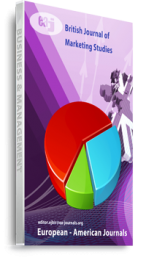Maimun Palace is one of the icons of Medan city, North Sumatra. This palace is the majestic palace of Deli Sultanate. Currently, Deli Palace is poorly maintained due to lack of funds. Therefore, it is necessary to attempt to increase the number of visitors. One of the ways is by using experiential marketing strategy. The essence of experiential marketing concept is marketing and management driven by the experiences. Experiential marketing consists of five types, namely sense, feel, think, act, and relate. The basis of forming experiential marketing is SWOT analysis (Strength, Weakness, Opportunity and threats)This study aims to 1) develop a model of the implementation of experiential marketing strategy based on strength, weakness, opportunity or threat; 2) pattern that forms the interest of customers based on the concept of experiential marketing strategy. The approach in this study was a qualitative approach. The method used was descriptive-exploratory method used to identify various strengths, weaknesses, opportunities and threats used as the basis for the formation of experiential marketing strategy. The sample consisted of 98 respondents selected by purposive random sampling method.The strength of Maimun Palace is a unique building and antique furnishings describing Malay, Arabic, Spanish, and Chinese cultures. In addition, the Malay culture has an attractive dance, interesting food and clothes. The weaknesses are poorly-maintained building, the absence of Malay cultural attractions, parks not maintained, and Tourguides not friendly. The opportunities for Maimun Palace are many tourists who come to Medan, but the tourists do not visit the Maimun Palace. Experiential marketing strategy that can be performed is to invite visitors to dance, eat together in the style of Malay, involved in the sultanate events.
Keywords: Interest, and SWOT analysis, experiential marketing

